AJN News
Coronavirus. Successful initiative of an Argentine rabbi in Miami to match up young Jews
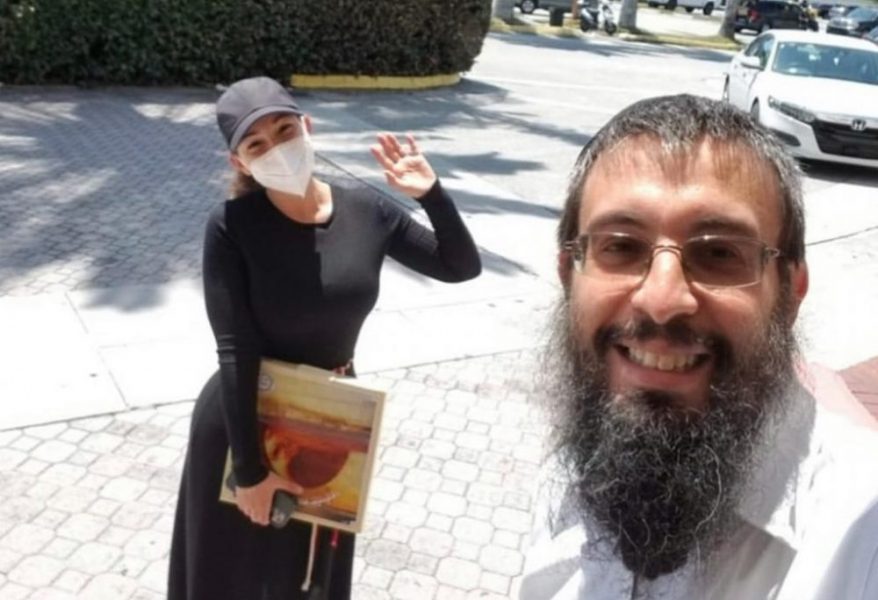
Agencia AJN.- Since the coronavirus pandemic, Rabbi Yossi Smierc, director of the center for young Jews «KSpace» in Miami, led an initiative for teenagers to meet through virtual events and form couples. For more than 13 years, the institution has carried out an enormous task receiving and providing support to young people from Latin America, especially from Venezuela, who arrive in Miami.
In a interview with Agencia AJN, Rabbi Smierc stressed that many young people discovered with the pandemic that they do not want to be alone: «It is incredible what is happening, by chatting with each other and they cannot wait to be able to travel to meet up. They need to be with someone, to form a family.
At this moment, the centre was forced to stop all its face-to-face activities, but it keeps on working through Zoom and social networks. «Every weekend, groups of boys and girls with the same Jewish backgrounds are set up. That is, if they are religious, if they are not so religious, if they are conservative or if they are traditionalists», added Smierc.
– Long ago you were in charge of helping those young people who had to take refuge outside Venezuela. That crisis prompted you to strengthen your institution and, without a doubt, the current crisis of the pandemic generates a new stage. What is this new stage like?
– When you’ re working constantly for the community and sometimes you drop so many personal issues, I sometimes find it hard to explain what I’ m doing and show it to the world. This is especially true for me, because I am devoted to the Jewish youth. So this is an opportunity to explain to the Jewish world and the world in general what we are achieving. I spend every hour of the day, from morning until 11 or 12 at night, contacting young people, not only from Miami, but especially from Latin America, from all over the United States and from all over the world, because there are kids from Europe and from Israel, who want to meet other young people. In this era of quarantine, social crisis, it is incredible how they want to know each other even more. Then I have more and more demand for work. For me, my wife and a group of young people who are helping me, time is hardly enough. I also don’t have enough time to look for sponsors, people to support our project, people from the outside to understand what we are doing. If I had to sit down and look for the funds we need to support these projects, I wouldn’t have the time to answer the questions and the young people who are desperate to meet other young people.
-What is it your analysis that maybe others didn’t see about Jewish youth?
-There is something incredible and new, I think very few people in the community know, that is the need of not being alone. It’s a very good psychological question if you think about the future of the Jewish people. More than 13 years ago we started with the first young people and started to form the first couples. The young people were always comfortable until three months ago, when they could meet any other young person, they could go dancing and they could go out with a girl. But after the coronavirus, the fear of socializing, the need to stay home as much as possible, and not even go out to work, awakened the need to be with someone, to form a family, because many young people who were always socializing in the discos, suddenly realized that they were alone. Many are immigrants from other cities in the United States or from other countries, who come to Miami to look for an opportunity. For this reason, two months ago we decided to start trying virtual activities every night. Every day there is a rabbi, a psychologist, a businessman, a lawyer or a doctor, who tells a story, not only of Torah, but of life. That made a lot of young people join in and every night almost 20 kids on average log on to the computer.
-What did you discover from this experience?
-We noticed that they started talking to each other, even after the activities were over. We did not close the Zoom because the young people stayed talking until 12 o’clock at night. And suddenly a boy started talking to a girl, and they also started asking me if there was anyone else they could meet. That’s how we realized that it’s a unique opportunity to bring together boys and girls no matter where they come from or where they live, because it’s the same living in Miami, New York, Argentina or Venezuela, if in the end they’re all at home. So, with the database we already have of many years of young singles, added to the database of a leader in New York, a rabbi from Argentina, a rabbi in Belgium and a girl from California, we began to put together, every weekend, groups of boys and girls with the same Jewish level. That is, if they are religious, if they are not so religious, if they are conservative, if they are traditionalists. Based on that, we started to bring them together and have group conversations with them through Zoom. We start the conversation so that they can get to know each other, we ask them interesting questions, for example: what was your worst experience on a date, what is the movie you would most recommend to watch, what conclusion do you draw from your life as a result of the coronavirus, what is the first thing you would do after this quarantine ends… Many boys and girls started talking to each other and there are more and more.
-From that beginning of your project 13 years ago as of today, are any marriages between some of them?
-There have been, thanks to God, almost 100 marriages, 100 couples.
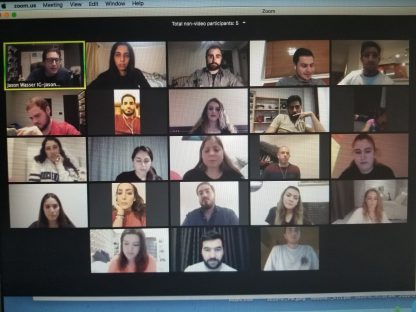
-So you’re a person who understands this, do you feel you can lead this moment and give this new generation of young people support and education?
-Yes. In the first group we made, I wasn’t the host. I left that place to other people, a psychologist, a therapist and a teacher. But I watched them and I realized that from my experience, I am the one who has to be in that place. Because I know how to break the ice among young people, and after so many years, which kid has to be in each group. So it’s not that just any kid gets into any group, a professional job is done in selecting the right people.
-Do you know of any initiative of this magnitude that already exists?
-Not that I know of. In fact, I am being contacted to repeat these experiences in other places. For example, I just got a call from Panama to ask if I could help doing the same thing there. I also know that there is something similar in the Orthodox world. But the difference between Orthodox kids and unorthodox kids is that Orthodox kids are looking to get married. Young religious people have practically prepared for the meeting, they are ready and willing for this. For the non-religious boys it is something very new and you tell them that this is to get to know each other, to make friends. For those who are not religious, I manage to bring them along more easily because of the years of experience I have.
If someone wants to get in touch, any young person in any country has the possibility?
-That’s already happening. The last two weeks we had boys and girls from Panama, Venezuela and Colombia. From South America we invited boys and girls from all countries and this week we will have people from Mexico.
-Is this something that’s coming to stay?
-This is going very well. Probably at the beginning it began very well because of a need to socialize. What I love is that this model can be used for the rest of the year, and if it works well, it will most likely be the future of how young, unorthodox Jews can meet each other and build families among countries. We are talking about a very big future, and without coronavirus we couldn’t reach that level.
-In the programs for young people who travel to Israel, there are Jewish people who give money with the only goal of making Jewish families. Do you think that this project may need these supports?
-Yes, I am doing this at my own pace, we are doing it leaving aside many important things, not only from my private life, but from the community aspect. For example, every day I try to find funds for the institution, and these last three weeks I could hardly dedicate myself. Firstly because it is not a good time to look for funds, perhaps because of the uncertainty of the economy, but on the other hand because I do not have enough time. So, if this works out well, we’re going to need to raise funds to hire someone to put the information in a database, talk to the youth, or do registrations. There is a wave of young people, including parents of young people, calling me, asking me to do something so that their children can get involved in this Zoom events. But for that we need to have staff and people working, who handle the information and get in touch with them, and help me set up the groups. Then we have to contact them one by one, ask them how it went, if they enjoyed it, if they would like to join again, if there was a person they liked or if they would like to be in touch with that person. It is a procedure that is going to take a lot of work, and for that you have to have an active staff.
-The young people realized that they were alone. So this stage has to be led by someone, who is trained in some way to understand the problems and bring better answers.
-A hundred percent. I think that’s the point. There is a very big change in the mentality of young people, and you realize that the need of young people to know someone is huge. I’m talking about young people who I never thought in my life would be looking for someone and would be participating in this Zoom. It’s incredible what’s happening, they’re talking to each other via chat and they can’t wait to get to know each other.
To contact KSpace, e-mail to [email protected].
AJN News
Argentina. Milei reflected on the Torah: «Those who play in all directions are the worst»
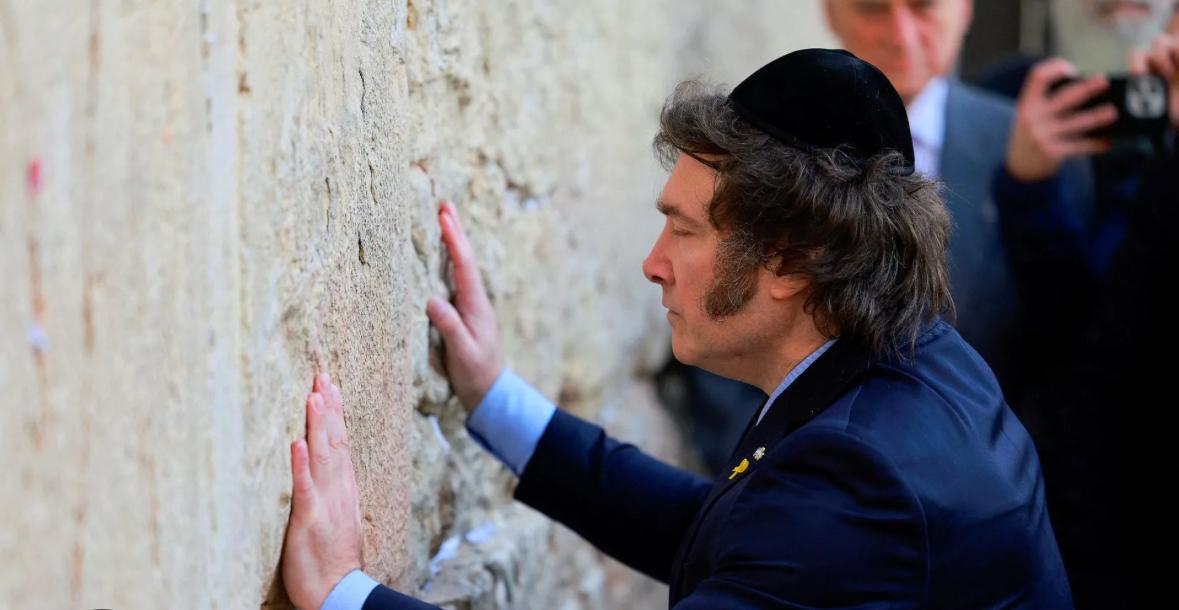
Agencia AJN.- Argentinian President, Javier Milei, once again resorted to the Torah, the sacred book of Judaism, to make a «reflection», such is the title of a post on his personal profile on the social network X that alludes to the political situation in his country, although in general terms.
On this occasion he referred to the current parashah (weekly reading portion of the Torah), Toldot, corresponding to the Book of Breishit (Genesis), which extends from perek (chapter) 25 and pasuk (verse) 19 to 28:9.
«The parasha says that Rivka, the wife of Yitzchak (Rebekah and Isaac), was worried when she was pregnant, because when she passed by a place of sanctity she felt that her son wanted to go there and when she passed by an impure place, too. And she was worried. and she went to consult with a prophet. The prophet answered her: you have two sons in your womb. One will be a leader of the people of Israel (Yaakov, Jacob) and another Esav who will be very evil, and will want to harm Yaakov and his offspring. And then she calmed down,» said the South American president.
«The question: does Rivka calm down after she is sure that she has a completely evil son, and before when she thought she had only one son she didn’t know what he would be like she was very disturbed?,” he asked.
«The answer: Rivka, when she thought that she had a single son, that he was LUKE without ideology and played for both sides, that worried her a lot. But then she found out that she has two, and it is clear that one plays for one side and the other completely the other way around, she calmed down,» Milei answered.
«Moral: Those who play for all sides are the worst of all, even much worse than the one who is completely evil. Because the one who is evil and shows himself as such, we have identified him. On the other hand, the other behaves like a good person and we never know what his attitudes and his evil intentions are,» he concluded, before saying goodbye with a «SHABAT SHALOM.»
AJN News
Argentina | Holocaust and Heroism Day. President Milei’s major speech against anti-Semitism and terrorism
»Therefore, in keeping with our history and with what we consider to be true, we ratify today our spirit of friendship and collaboration with the State of Israel and we offer Argentina’s candidacy for the International Presidency of the IHRA», expressed Milei.
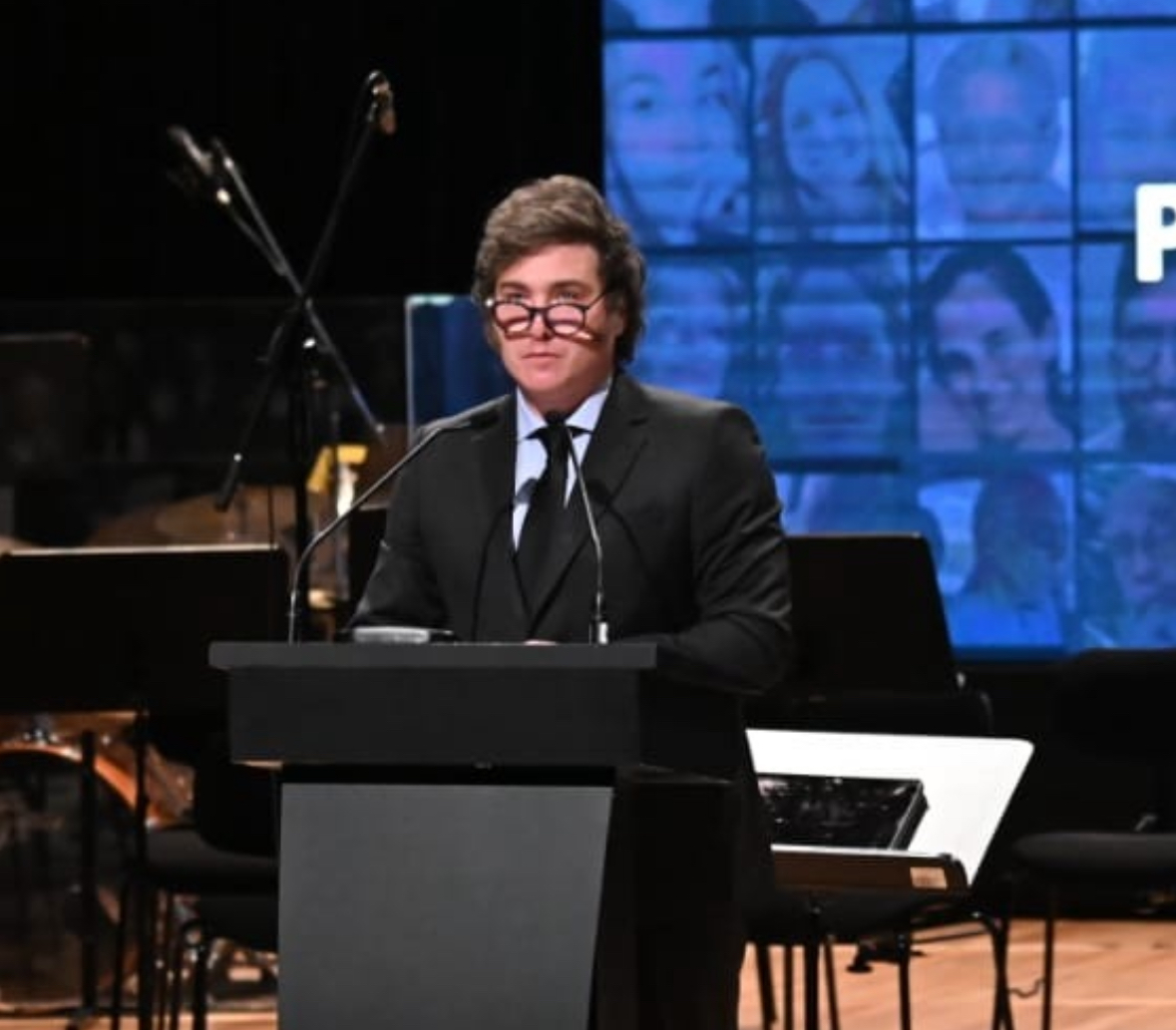
Agencia AJN.- At an event organised on Wednesday by the Delegation of Argentinean Israelite Associations (DAIA) and the Holocaust Museum of Buenos Aires to commemorate Holocaust and Heroism Day, the 81st anniversary of the Warsaw ghetto uprising, President Javier Milei announced ‘Argentina’s candidacy for the presidency of the International Holocaust Remembrance Alliance’ (IHRA).
The IHRA is an intergovernmental organisation of 35 states whose aim is to combat acts of anti-Semitism, intolerance and discrimination that can lead to genocides such as those experienced by humanity in the 20th century.
The main event was also attended by Nazi survivors, relatives of people kidnapped by Hamas, national, provincial and municipal authorities, judges, political leaders, diplomats, representatives of different religious denominations, community leaders, among others.
Argentina. Discurso y anuncio del presidente Javier Milei en el acto del Día del Holocausto organizado por el Museo del Holocausto y la DAIA @JMilei @DAIAArgentina @museoshoa #HolocaustRemembranceDay #YomHaShoah @Isaac_Herzog @AmbEyalSela @netanyahu #israel @israelmfa… pic.twitter.com/8uQVSq1inE
— Agencia AJN (@AgenciaAJN) May 9, 2024
President Milei’s full speech:
At the outset, I would like to pay tribute to Lior Rudaeff, an Argentinean living in Israel who was kidnapped and murdered by the Hamas terrorist organisation on 7 October. I would like to extend my sincere condolences to his family and loved ones, and call for the return of his body so that he can be given a proper farewell by them. Baruch Dayan Haemet to him and to all the victims of Islamic terrorism in Argentina and the world.
Today more than ever there can be no doubt that the scourge of Islamic terrorism on Israel and the Jewish people is not a problem alien to us Argentines, but one that affects us directly. First, because 21 Argentines were murdered by Hamas on that tragic day, 20 more Argentines were kidnapped and today, seven months after the attack, there are at least eight compatriots for whom we still do not know whether they are still among us or whether they have passed on to another life. Secondly, because when a battle is fought between good and evil, between freedom and oppression, between civilisation and barbarism, taking sides is not one option among others but a moral obligation.
Today we are here to remember perhaps the greatest tragedy in the history of mankind, we are doing so under the name of Holocaust and Heroism Day, and I would like to pause to discuss with you this second concept, heroism. Because I believe that the heroism and virtue of men is the flip side of tragedy, it is the only thing that can make the righteous prevail over those who seek to oppress them and rob them of their freedom. And because I believe that in times of darkness, when speaking out is costly and when the majority prefer to turn their backs on righteousness for their own convenience, promoting virtue is a commandment and a duty.
We remember today the Jewish resistance in the Warsaw ghetto, where 300,000 souls were imprisoned in inhumane conditions for three years by the Nazi regime, only to be transferred to extermination camps as we all know. We remember that one day in 1943 the prisoners took what few weapons there were and put up a fight. For 27 days they fought for their freedom, under unequal conditions and with virtually no chance of success. They fought for their freedom, which is a just cause in every time and place, and they chose to die fighting rather than be killed.
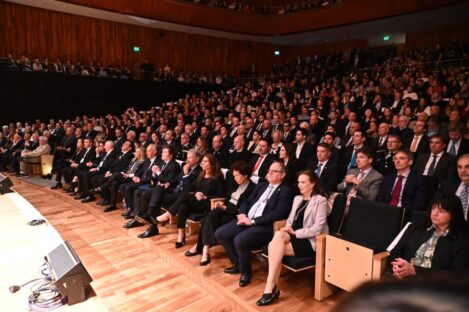
The struggle for freedom against adversaries always more powerful than themselves has been a constant in the history of the Jewish people, and has forged for them a heroic spirit, a warrior spirit. This is already clear in the sacred scriptures, it is seen in the exodus of the Jewish people from Egypt, escaping from the yoke of Pharaoh, leaving behind slavery to embrace freedom. The revolt of the Maccabees is clear when, despite being in a distinct minority, the least against the most, the weak against the powerful, they drove out the Greek invader and recaptured Jerusalem. It was never the number of soldiers that mattered, but the forces that came from heaven.
Fighting battle upon battle for over 4,000 years, though many were lost and though the temple in Jerusalem was destroyed twice, the Jewish people persisted. And today again, being under threat, surrounded by enemies who pursue a goal akin to the goal of those who imprisoned more than 300,000 souls in the ghetto 80 years ago, because the intention of Hamas on 7 October was the same as that of the Nazis, to directly and deliberately murder innocent people, if they did not do it on a larger scale, it was not because they did not want to but because they could not.
Today, we see in parallel to these sad events a recognition in the world of both intolerant Islamic fanaticism and anti-Semitism in its different versions. And to make matters worse, we see how all these phenomena are not perceived by the free world with the sharp condemnation and firm action they demand, but with discomfort and ambiguous gestures. I look around me at the rest of the leaders of the free world, especially the leaders of the great nations that should be the pillars of global freedom, and I see indifference in some and fear in others to stand on the side of truth.
Today the world is silent while there are still more than 100 hostages suffering, eight of whom are fellow Argentines. Not to mention the blatant anti-Semitism that has become commonplace on the campuses of educational institutions entrusted with the professional and human training of the West’s elites. I believe that the heroism we talk so much about and want to promote is also to defend the truth, to speak the truth when around us the truth is silenced.
That is why when the world is silent, we have an obligation to speak out, because it is the silence of the good that allows the barbarity of the bad, and because speaking out, looking straight and not turning a blind eye, even though it is difficult, even though for many it is inconvenient, is the only way to ensure that the Shoah is not repeated.
Emotivo acto del Día del Holocausto en Argentina con la presencia del presidente @JMilei organizado por @museoshoa y @DAIAArgentina.@JKnoblovits @CancilleriaARG @mondino @IsraelMFA @JonathanPeled @Isaac_Herzog @netanyahu @AmbEyalSela @LiorHaiat @BringThemHome23 #Israel pic.twitter.com/4gau1RIqiR
— Agencia AJN (@AgenciaAJN) May 9, 2024
And because God will not accept justifications or exculpations when it comes to rendering his ultimate judgement, we will not be able to tell him what, but I could not or what virtue was not convenient at the time, he will not judge us for what we thought, believed or wanted, but for having done the right thing in life. That is why today remembering the Shoah, remembering heroism and denouncing Islamic terrorism is an obligation, because without heroes we are defenceless in the face of an ever darker and longer night.
In closing I would like to thank Marcelo Mindlin, Jorge Knoblovits and the rest of the authorities of the DAIA and the Holocaust Museum for organising and inviting me to be part of this commemoration at such a difficult time for the Jewish people that demands that we all work back-to-back.
I also want to tell you that Argentina is a historic friend of the Jewish people. We were the first country in the region to recognise the existence of the State of Israel and today we proudly have the largest Jewish community in Latin America and the tenth largest in the world. Together with the Jewish community, we have suffered the cowardly attacks by the Iranian government, not only on the Jewish-Argentine community, but on the Argentinean people as a whole, which, thanks to the persistent efforts of those who seek the truth, are now, three decades later, beginning to be clarified.
Therefore, in keeping with our history and with what we consider to be true, we ratify today our spirit of friendship and collaboration with the State of Israel and we offer Argentina’s candidacy for the International Presidency of the IHRA (video), an institution whose value takes on new relevance and urgency every day, at a dark time, when the rest of the world is turning its back on Israel, they will find us at their firm side always.
Finally, and lastly, I would like to conclude with a letter from Rabbi Samson Raphael Hirsch, which seems to me to be very pertinent to the times we are living in and which should be present in our lives every day. This letter says: ‘Those who are convinced that their opinions are true and correct must express them constantly and at every opportunity with candour, and without regard to the degree of support they have and the level of opposition they will encounter. Lies need supporters to succeed; lies need the authority of majorities to fill what they lack in the rightness of their argument. Truth, on the other hand, will always win out in the end. Even if it takes time, noble, courageous and pure, expressed with all the ardour of conviction and with all the clarity of a sure conscience, expressed again and again on every occasion, it will eventually win the respect and esteem of even those who refuse to accept it. The only truth that has been lost without the possibility of regaining it is that whose possessors have not the courage to speak frankly of it. Truth was never defeated by the forces of resistance, it was only defeated when its possessors were too weak to defend it’.
Thank you very much.
-

 Israelhace 22 horas
Israelhace 22 horasIsrael: 17 heridos, dos de ellos graves, tras impacto de misil balístico iraní en Haifa
-
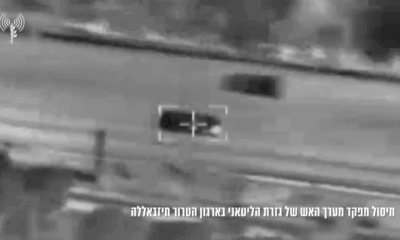
 Medio Orientehace 22 horas
Medio Orientehace 22 horasEliminado en el sur del Líbano el comandante de artillería de Hezbollah responsable de ataques contra Naharía y Haifa
-
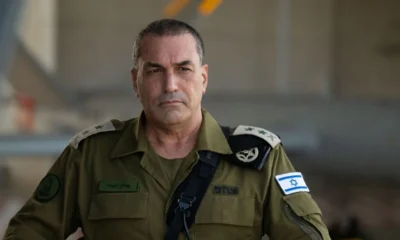
 Israelhace 17 horas
Israelhace 17 horasEl jefe de las FDI insinúa una guerra prolongada: «Lanzamos esta campaña para eliminar la amenaza»
-
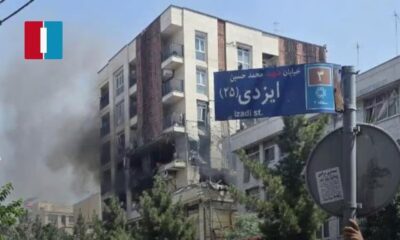
 Medio Orientehace 23 horas
Medio Orientehace 23 horasInforme: Ataque con drones en Teherán habría tenido como objetivo a científico iraní especializado en armamento
-
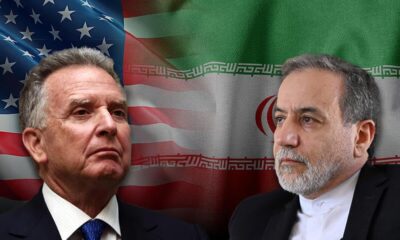
 Medio Orientehace 18 horas
Medio Orientehace 18 horasIrán rechaza negociaciones con Estados Unidos mientras continúen los ataques israelíes
-

 Israelhace 24 horas
Israelhace 24 horasLa aerolínea israelí El Al ofrece a sus clientes la opción de regresar a Israel desde Chipre en crucero
-
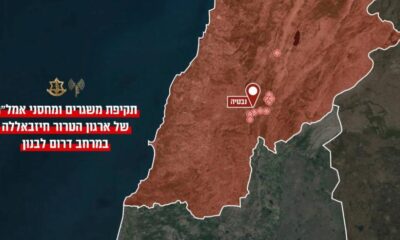
 Medio Orientehace 18 horas
Medio Orientehace 18 horasLas FDI llevaron a cabo una serie de ataques contra objetivos de Hezbolá en el sur del Líbano
-
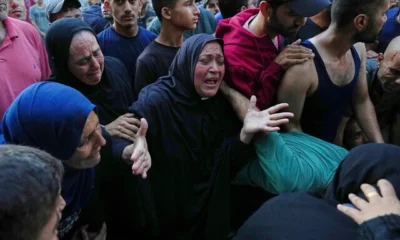
 Medio Orientehace 17 horas
Medio Orientehace 17 horasLas autoridades sanitarias controladas por Hamás afirman que los ataques israelíes abatieron a 44 palestinos




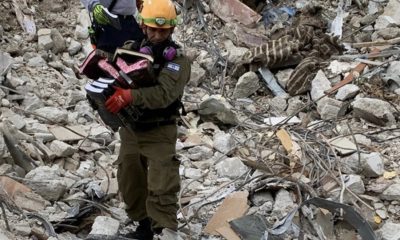

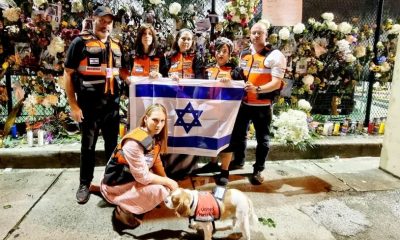

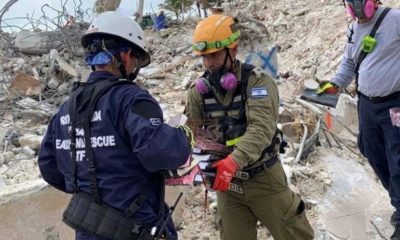

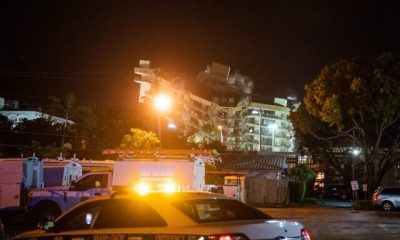

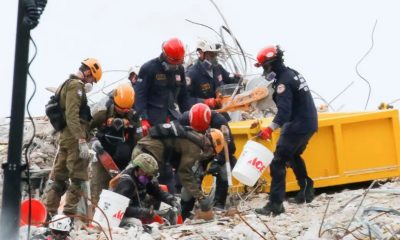


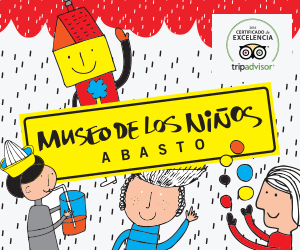
 Suscribite al Whatsapp!
Suscribite al Whatsapp!